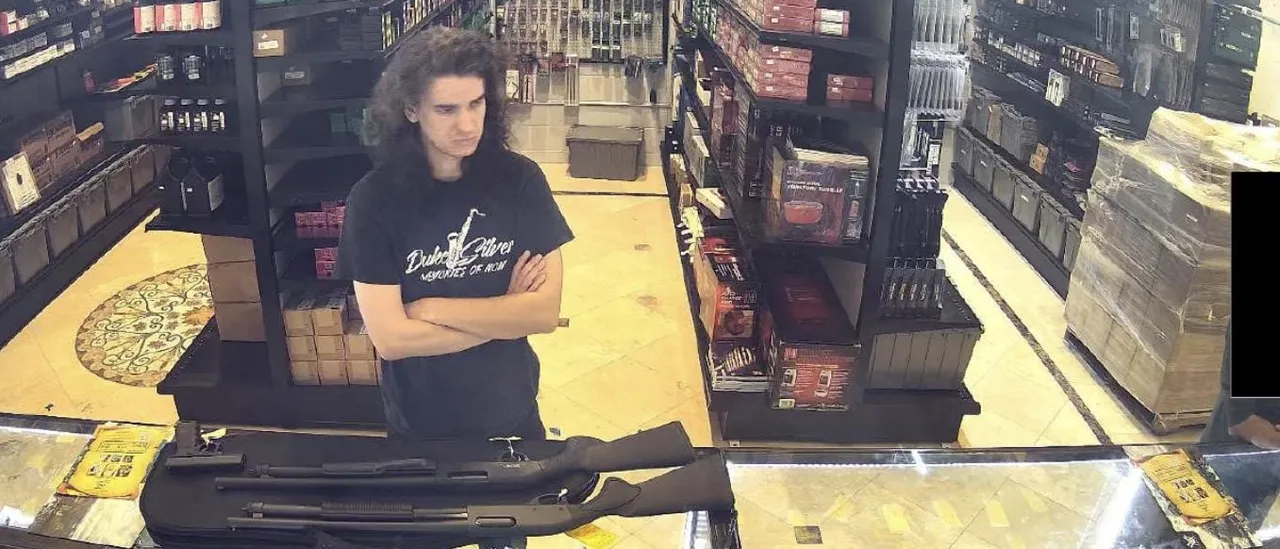Nicholas Roske, who was arrested for allegedly attempting to assassinate Associate Supreme Court Justice Brett Kavanaugh in June 2022, is facing a potential sentence of 30 years in prison. Family members and friends have submitted character references urging leniency, highlighting Roske’s transgender identity and mental health struggles. The case has drawn attention to the complexities surrounding issues of identity, mental health, and political violence in contemporary America.
Roske’s mother recently discovered a hospital discharge paper in his suitcase that referred to him as “Sophie Roske.” During a character reference, she expressed that this revelation helped her understand her child’s struggles. Roske’s defense attorneys revealed in a filing on September 19 that he is now using female pronouns and the name “Sophie.”
Judge Deborah Boardman, appointed by President Biden, is presiding over the case. In a previous ruling, she denied parents the right to opt their children out of LGBTQ-themed storybook lessons, a decision that the Supreme Court later overturned in July. The context of Roske’s case is marked by his assertion that he was in a vulnerable state when he showed up outside Kavanaugh’s home with a firearm. He noted in a letter to the judge that he was still “in the closet” at the time of the incident.
Roske admitted to having suicidal thoughts leading up to the assassination attempt, stating that the political climate and personal struggles contributed to his deteriorating mental health. He wrote, “When the draft leaked, my self-esteem was at rock bottom, along with my hope for the future.” According to Roske, he had been attending therapy and taking medication but stopped during the COVID-19 pandemic due to discomfort with virtual sessions.
Family Insights and Support
Roske’s family members have expressed their evolving understanding of his identity since his incarceration. His mother noted that they have had open discussions about his gender identity, while his father shared that Roske moved in and out of communal living spaces before settling back with his family. He described a period of instability where Roske questioned his beliefs and struggled to find direction in life.
Friends of Roske have also conveyed their empathy for his situation. One friend, identifying as John, stated, “Both of us, on our individual quests for moral truth, have had to confront the ugly hypocrisy that is the American church.” John emphasized that Roske’s decision not to follow through with violence reflects a struggle to realign his moral compass.
Roske’s sister, who identifies as gay, pointed out that their parents have grown more accepting of the LGBTQ+ community over recent years. She mentioned that their parents have been attending support meetings organized by PFLAG, a national organization for families and friends of LGBTQ+ individuals. She argued that the family’s acceptance of Roske should be considered in the judge’s decision-making process.
Legal Proceedings and Future Concerns
In his correspondence to the judge, Roske expressed concern about being housed in a men’s prison without access to gender-affirming care. He indicated that he has been taking hormone therapy while detained. A memo directing the Bureau of Prisons to provide hormone therapy to incarcerated individuals was referenced in court documents, following a ruling that blocked an executive order from former President Trump.
On June 8, 2022, Roske called 911 while standing outside Kavanaugh’s home with a firearm. He informed the dispatcher of his plans to take his own life. In his letter, he reflected on the moment, stating, “I had become so focused on the effects policy has on people that I forgot the judges and politicians making policy are real people too.”
Roske pleaded guilty to the charges in April 2023, and his sentencing is scheduled for September 22, 2023. The outcome remains uncertain as the court considers the arguments presented by his family and friends, alongside the serious nature of his actions. The case highlights the intersection of mental health, identity, and the implications of political violence in today’s society.
